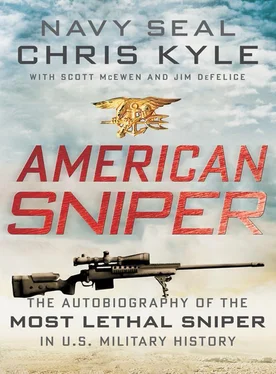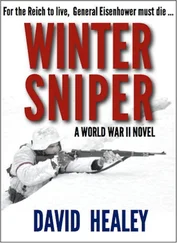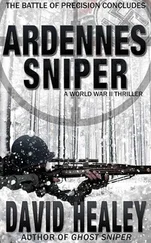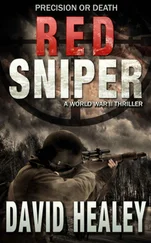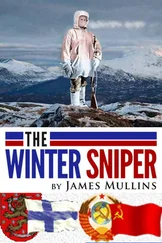After 9/11, SEALs began training to deal with the places Islamic terrorists were most likely to be located—Afghanistan number one, and then the Middle East and Africa. We still did all the things a SEAL is supposed to do—diving, jumping out of planes, taking down ships, etc. But there was more emphasis on land warfare during our workup than there traditionally had been in the past.
There was debate about this shift far above my pay grade. Some people wanted to limit SEALs to ten miles inland. Nobody asked my opinion, but as far as I’m concerned, there shouldn’t be any limits. Personally, I’m just as happy to stay out of the water, but that’s beside the point. Let me do what I’m trained to do wherever it needs to be done.
The training, most of it anyway, was fun, even when it was a kick in the balls. We dove, we went into the desert, we worked in the mountains. We even got water-boarded and gassed.
Everybody gets water-boarded during training. The idea is to prepare you in case you’re captured. The instructors tortured us as hard as they could, tying us up and pounding on us, just short of permanently damaging us. They say each of us has a breaking point, and that prisoners eventually give in. But I would have done my best to make them kill me before I gave up secrets.
Gas training was another kick. Basically, you get hit with CS gas and have to fight through it. CS gas is “captor spray” or tear gas—the active ingredient is 2-chlorobenzalmalononitrile, for all of you chemistry majors. We thought of it as “cough and spit,” because that’s the best way to deal with it. You learn during training to let your eyes run; the worst thing to do is rub them. You’re going to get snotty and you’re going to be coughing and crying, but you can still shoot your weapon and fight through it. That’s the point of the exercise.
We went up to Kodiak, Alaska, where we did a land navigation course. It wasn’t the height of winter, but there was still so much snow on the ground that we had to put on snowshoes. We started with basic instruction on keeping warm—layering up, etc.—and learned about things like snow shelters. One of the important points of this training, which applied everywhere, was learning how to conserve weight in the field. You have to figure out whether it’s more important to be lighter and more mobile, or to have more ammunition and body armor.
I prefer lightness and speed. I count ounces when we go out, not pounds. The lighter you are, the more mobile you become. The little bastards out there are faster than hell; you need every advantage you can get on them.
The training was pretty competitive. We found out at one point that the best platoon in the Team would be shipped out to Afghanistan. Training picked up from that point on. It was a fierce competition, and not just out on the training range. The officers were backstabbing each other. They’d go to the CO and dime each other out:
Did you see what those guys did on the range? They’re no good…
The competition came down to us and one other platoon. We came in second. They went to war; we stayed home.
That’s about the worst fate a SEAL can imagine.
With the conflict in Iraq looming on the horizon, our emphasis shifted. We practiced fighting in the desert; we practiced fighting in cities. We worked hard, but there were always lighter moments.
I remember one time when we were on a RUT (real urban training). Our command would find a municipality that was willing to have us come in and take down an actual building—an empty warehouse, say, or a house—something a little more authentic than you would find on a base. On this one exercise, we were working at a house. Everything had been carefully arranged with the local police department. A few “actors” had been recruited to play parts during the exercise.
My role was to pull security outside. I blocked out traffic, waving vehicles away as some of the local cops watched from the sidelines.
While I was standing there, gun out, not looking particularly friendly, this guy walked down the block toward me.
I started going through the drill. First I waved him off; he kept coming. Then I shined my light on him; he kept coming. I put my laser dot on him; he kept coming.
Of course, the closer he got, the more convinced I was that he was a role-player, sent to test me. I mentally reviewed my ROEs (“rules of engagement”), which covered how I was supposed to act.
“What are you, the popo?” he asked, sticking his face out toward mine.
“Popo” (a thug’s term for police) wasn’t in the ROEs, but I figured he was ad-libbing. The next thing on my list was to throw him down. So I did. He started to resist, and reached under his jacket for what I assumed was a weapon, which is exactly what a SEAL playing a bad guy would do. So I reacted in kind, giving a good SEAL response as I wrestled him into the dirt and busted him up a bit.
Whatever was under his jacket broke and liquid went everywhere. He was cussing and carrying on, but I didn’t take the time to think about all that just then. As the fight ran out of him, I cuffed him and looked around.
The cops, seated in their patrol car nearby, were just about doubled over laughing. I went over to see what was up.
“That’s so-and-so,” they told me. “One of the biggest drug dealers in the city. We wish we could have beat him like you just did.”
Apparently, Mr. Popo ignored all the signs and wandered into the training exercise figuring he’d carry on business as usual. There are idiots everywhere—but I guess that explains how he got into that line of work in the first place.
For months, the United Nations Security Council pressured Iraq to comply fully with U.N. resolutions, especially those requiring inspections of suspected weapons of mass destruction and related sites. War wasn’t a foregone conclusion—Saddam Hussein could have complied and shown inspectors everything they wanted to see. But most of us knew he wouldn’t. So when we got the word that we were shipping out to Kuwait, we were excited. We figured we were going to war.
One way or the other, there was plenty to do out there. Besides watching Iraq’s borders and protecting the Kurdish minority, who Saddam had gassed and massacred in the past, U.S. troops were enforcing no-fly zones in the north and south. Saddam was smuggling oil and other items both into and out of his country, in violation of the U.N. sanctions. The U.S. and other allies were stepping up operations to stop that.
Before we deployed, Taya and I chose to get married. The decision surprised both of us. One day we started talking in the car, and we both came to the conclusion that we should get married.
The decision stunned me, even as I made it. I agreed with it. It was completely logical. We were definitely in love. I knew she was the woman I wanted to spend my life with. And yet, for some reason, I didn’t think the marriage would last.
We both knew that there is an extremely high divorce rate in the SEALs. As a matter of fact, I’ve heard marriage counselors claim that it is close to 95 percent, and I believe it. So maybe that was what worried me. Perhaps part of me wasn’t really ready to think about a lifetime commitment. And of course I understood how demanding my job was going to be once we went to war. I can’t explain the contradictions.
But I do know that I was absolutely in love, and that she loved me. And so, for better or worse, make that peace or war, marriage was our next step together. Happily, we’ve survived it all.
One thing you ought to know about SEALs: when you’re new to the Teams, you get hazed. The platoons are very tight-knit groups. Newcomers—always called “new guys”—are treated like hell until they prove they belong. That usually doesn’t happen until well into their first deployment, if then. New guys get the shit jobs. They’re constantly tested. They’re always beat on.
Читать дальше
